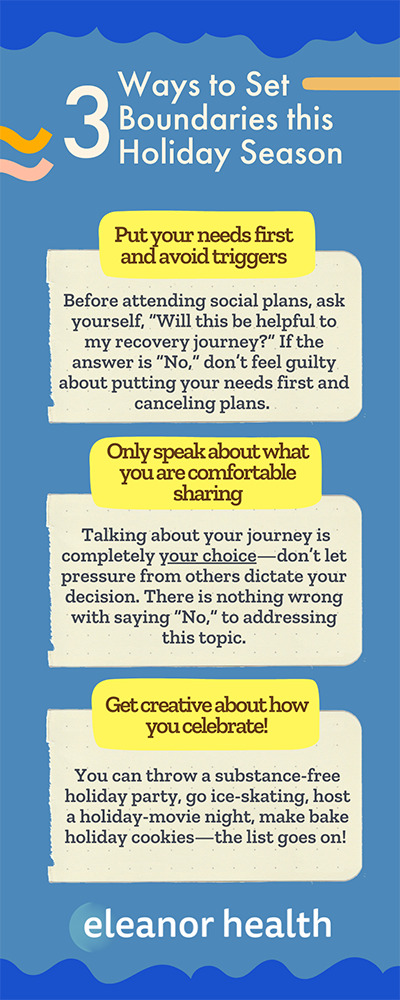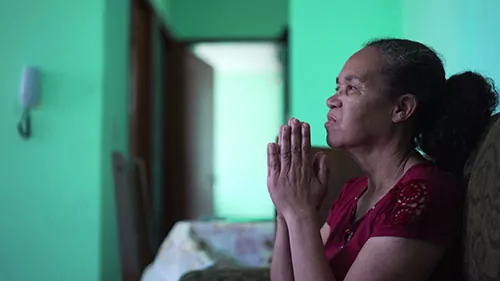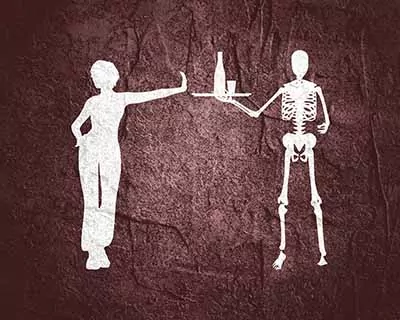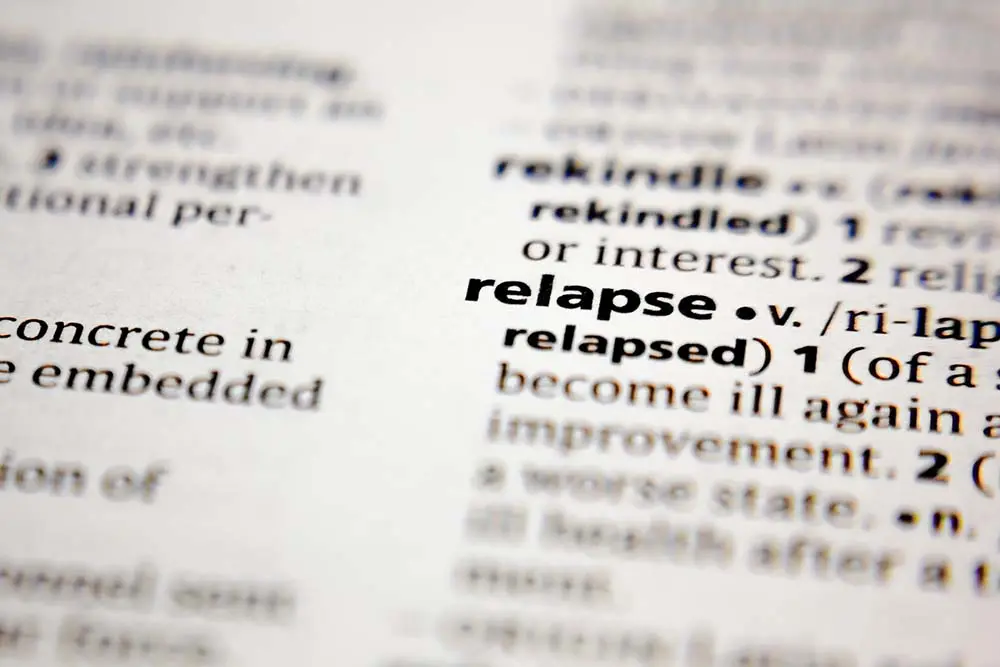For many people, setting healthy boundaries is an anxiety-inducing task. Sometimes, worries about how loved ones will react to boundaries can be so overwhelming that you’d rather stay in an uncomfortable situation to keep the peace. The holiday season doesn’t make this any easier. Holidays are often a time when family and friends get together and reconnect and spread holiday cheer. But, they can also be a time when interpersonal tensions rise, and the stress of preparation heightens. Whether you see your family and friends often or once a year, it is never too late–or too early–to set boundaries to protect your mental health.
The period between Thanksgiving and New Year’s Day accounts for a significant increase in drinking rates [1]. Studies show an increase in alcohol consumption of over 33% [2] compared to the rest of the year. And, alcohol use heightens at the latter end of the holiday season. Survey results show that 47% of men and 40% of women report binge drinking as a way to ring in the new year [3].
This increase in alcohol consumption is affected by the obvious: an increase in celebrations. For many, parties are often associated with drinking, and an increase in holiday-themed parties and get-togethers means a higher prevalence of alcohol. Yet, research shows that this increase can result from something much less joyous: heightened depression and anxiety [4]. Seasonal Affective Disorder, financial struggles, pressure to be happy, and other variables affect this. No matter the cause, this increase can lead to the use of negative coping mechanisms, like substance use, to self-soothe and decrease symptoms of worsened mental health.
It is vital for everyone to learn how to set healthy boundaries. Setting boundaries is a skill applicable to all areas of life, including personal, career, romantic, and interpersonal. But, setting boundaries can take on a new level of importance for people who experience Substance Use Disorder (SUD).
The increased prevalence of alcohol may be very triggering for those in addiction recovery, especially for those who are just starting. The presence of alcohol can be triggering because it may tempt them to relapse, remind them of times they may have been depressed, or make them feel they must explain their sobriety to everyone. Holiday triggers are difficult to experience. But, there are ways to make them easier to navigate. One of the most effective ways is setting boundaries with yourself and your loved ones this holiday season. That way, you can celebrate while staying happy and healthy!

Spending time with loved ones is important and positively affects recovery in most cases. But, it is important to recognize when situations and/or people become destructive to your recovery journey. In a perfect world, all our loved ones would have our best interests in mind and support us when we need them. Realistically, though, it is likely that you’ll encounter some people who don’t support your recovery journey. People may even dismiss your experience and add to the existing stigma of SUD.
Additionally, events in which alcohol is prevalent may act as a trigger or temptation during your recovery. Before attending social plans, ask yourself, “Will this be helpful to my recovery journey and mental well-being?” If the answer is “No,” don’t feel guilty about putting your needs first and canceling plans. Remember, you are doing the right thing by caring for your mental health and continuing your recovery journey.
For some, speaking openly about your recovery journey can feel empowering. For others, it may feel like an obligation to overshare. Talking about your journey is completely your choice—don’t let pressure from others dictate your decision. During the holidays especially, you may find it beneficial to set boundaries by not speaking about parts of your recovery that you wish to remain private. Even if they mean well, having family members or friends impose their opinions and unsolicited advice on your journey can be frustrating and challenging. There is nothing wrong with saying “No,” to addressing this topic. In the end, you know what is best for you. Do what you’re comfortable with!
Despite many holiday parties having alcohol present, there are plenty of ways to get in the festive spirit without triggers. You can throw a substance-free holiday party, go ice-skating, host a holiday-movie night, bake holiday cookies—the list goes on! Invite people who are supportive and encouraging of your sobriety to these events—perhaps even some friends from your recovery support group!
The holidays can be challenging to navigate when you have SUD, but this doesn’t have to stop you from participating in the celebration. Hopefully, you feel inspired to set healthy boundaries and have a festive holiday season without jeopardizing your mental health! Remember, your mental health always comes first, no matter what time of year.
If you or your loved one needs help with alcohol addiction, contact us today.
If you need help with your substance use disorder, we are here to help you build your confidence and momentum towards the future you want. We provide treatment services for adults with alcohol, opioid, and other substance use disorders. We are currently located in Florida, Louisiana, Massachusetts, North Carolina, New Jersey, Ohio, Texas, and Washington.
 The Importance of Gratitude in Addiction Recovery
The Importance of Gratitude in Addiction Recovery
 Sober Party Tips for Halloween
Sober Party Tips for Halloween
 Addiction Relapse: Why It Happens & How to Prevent It
Addiction Relapse: Why It Happens & How to Prevent It